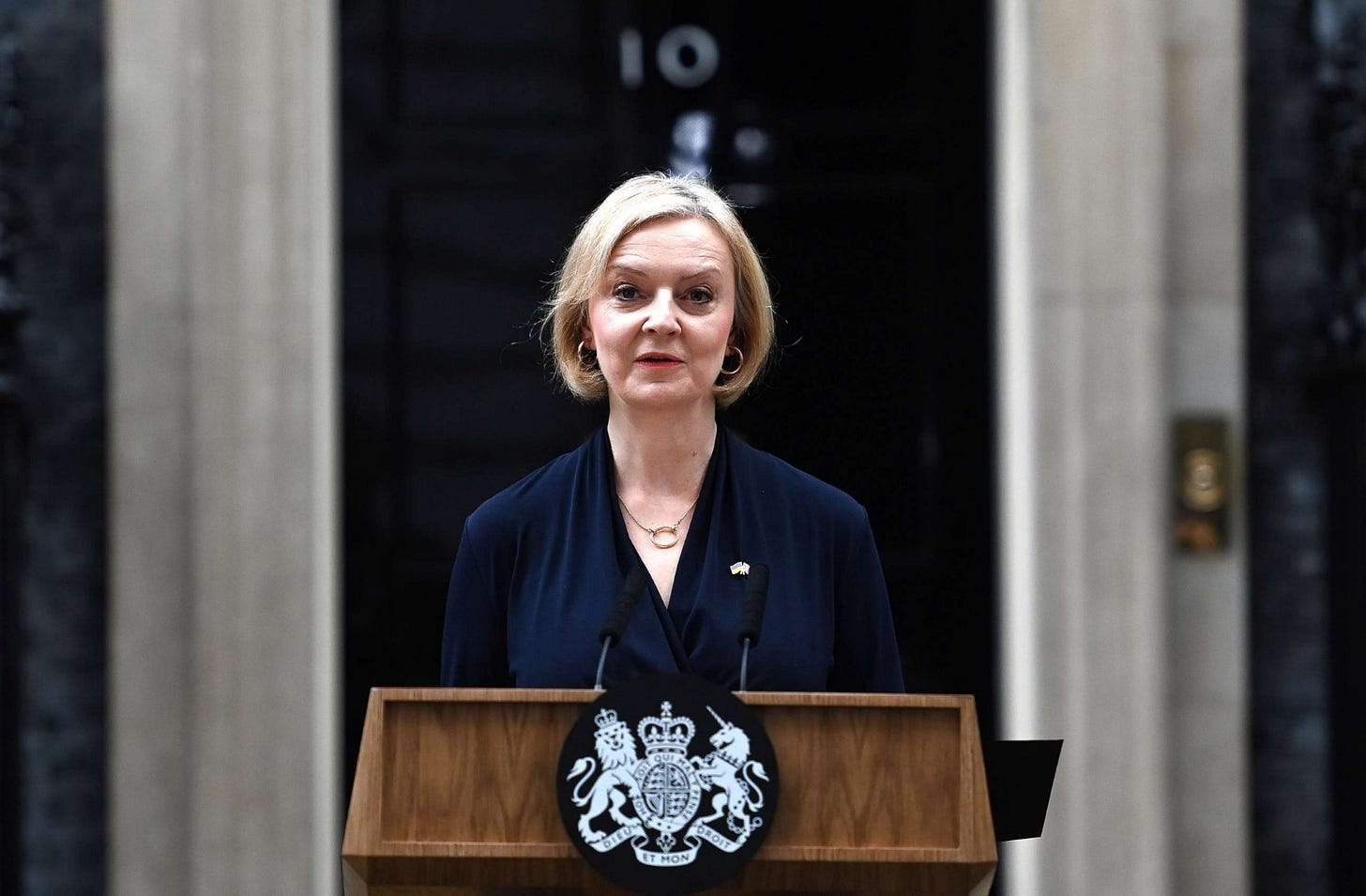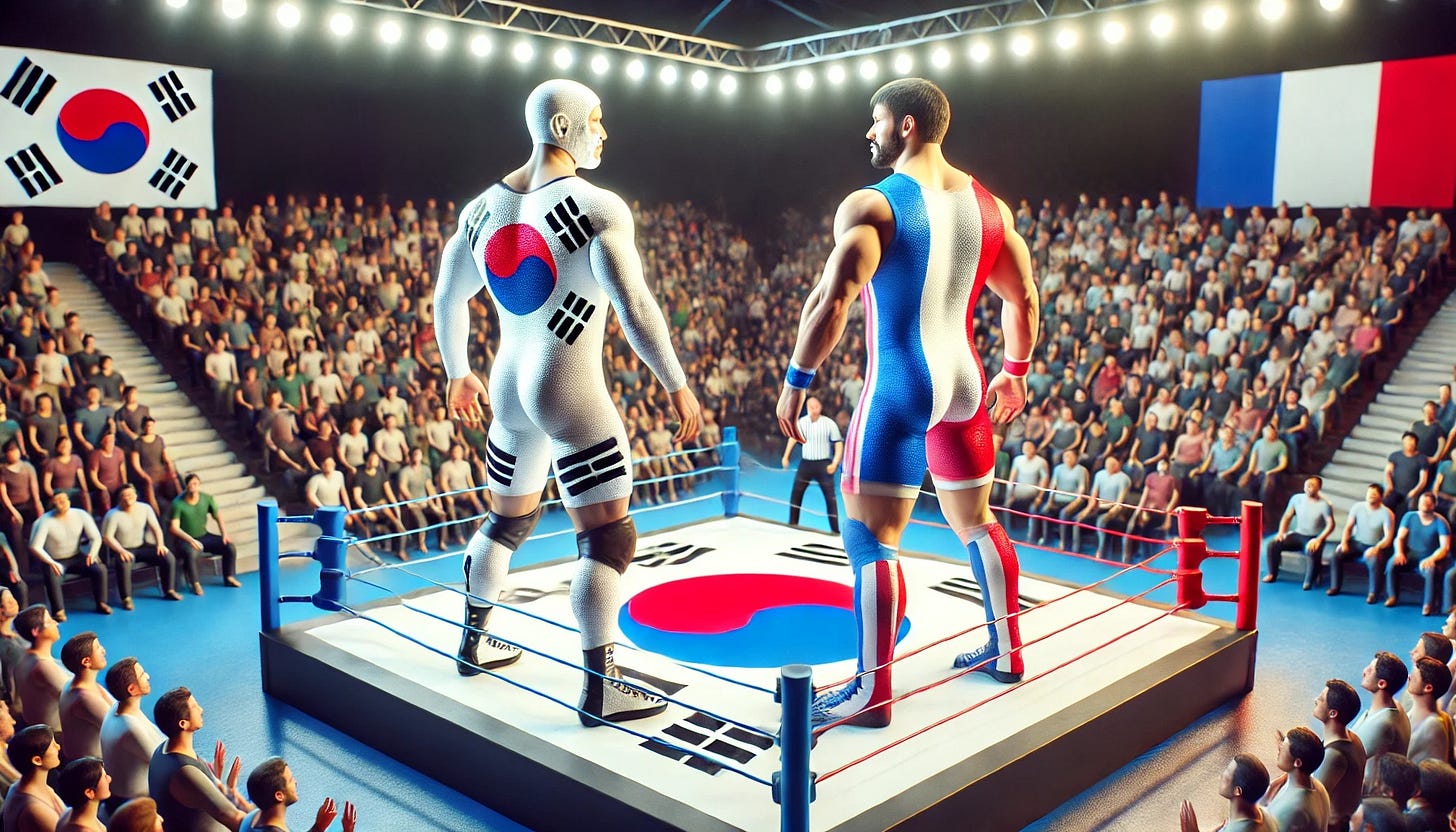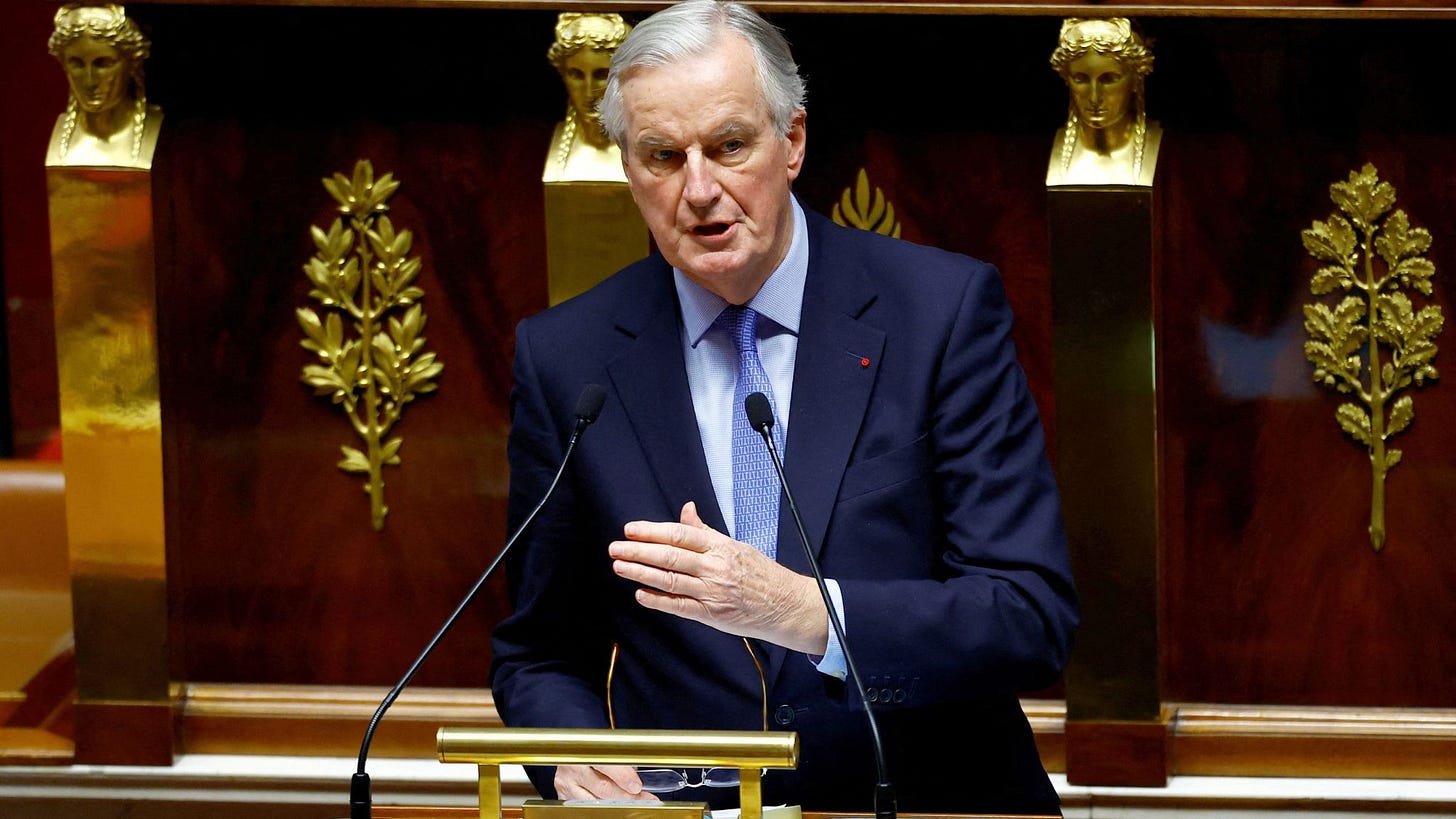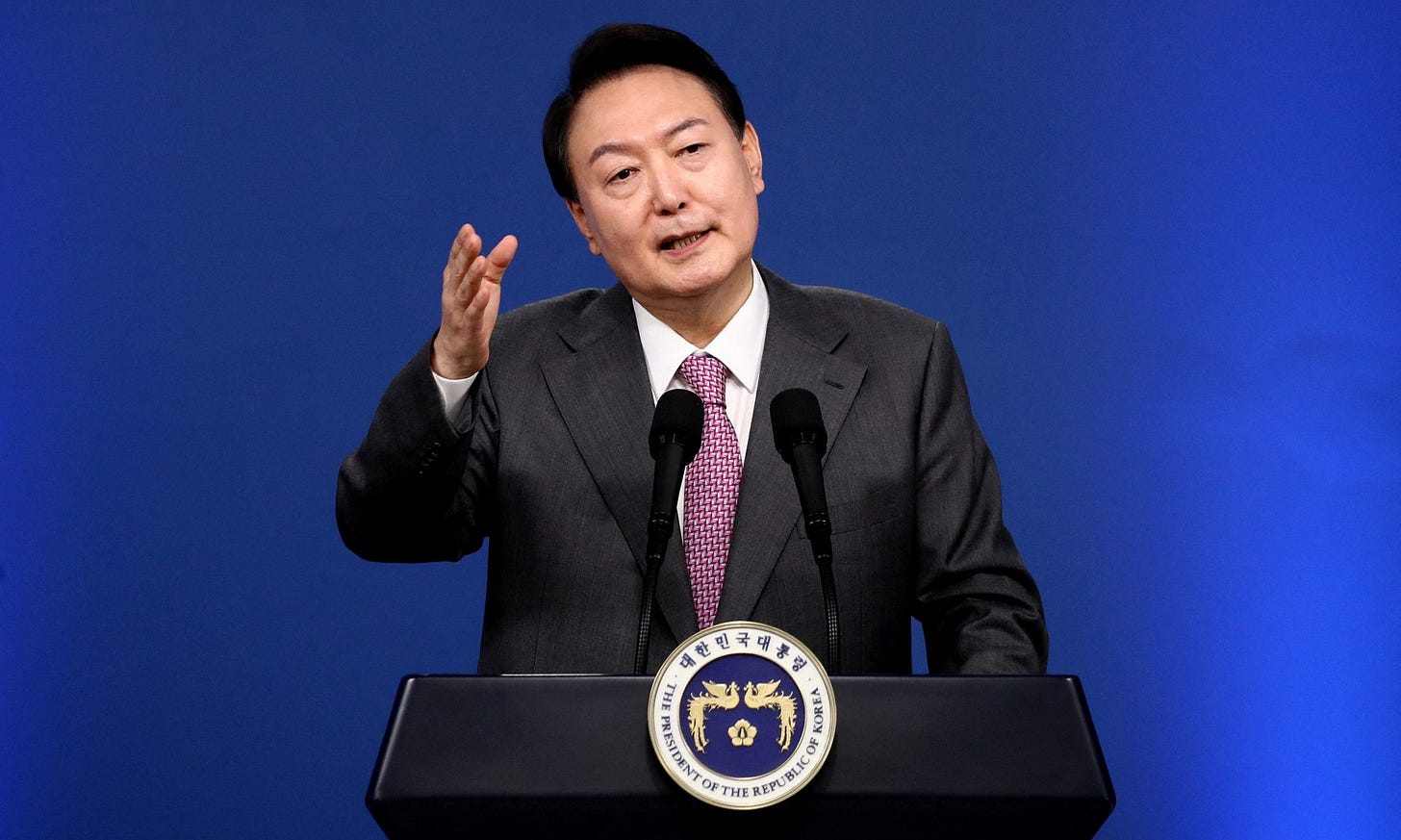It is a lovely week for political drama lovers.
Two governments of developed countries on two different continents are deep into a political crisis, both of them on unprecedented levels in their respective histories.
On one side of the ring, we have France, the second-largest economy in the European Union with a GDP of more than $3tn. On the other is South Korea, the fourth largest in Asia, also boasting a respectable $1.8tn economy.
While France is a leader in the fashion and luxury industry, South Korea is the only other country (besides Taiwan) possessing the much-desired advanced chip manufacturing among other industries. Clearly, the developments in both countries are a serious cause for concern.
Of course, the causes and implications of both are far isolated from each other and unique in circumstances. Still, analysing them will give not only future politicians and leaders notes on what NOT to do, but it might also give any leader of a group food for thought.
France's Shortest Government since the 5th Republic
France is one of the oldest democracies right alongside the US. Naturally, it gets interesting to look at the developments in the country. And what a show we got.
Background
After the June dissolution of Parliament by French President Emmanuel Macron (a train wreck of its own), the holding of snap elections, and the forming of a coalition government, Michael Barnier was chosen as the Prime Minister to lead France through the post-pandemic world. His primary goal was getting the economy back on track, including lowering a massive budget deficit.
Barnier’s Action
Barnier's prompt action towards that deficit inadvertently triggered his downfall. He used a controversial constitutional maneuver (Article 49.3 of the Constitution) to bypass parliament and force through a social security financing bill that aimed at closing the huge €60bn (£49bn) deficit which was because of tax rises and spending cuts.
Consequences
The Parliament, with the opposition, heavily denounced him and almost immediately passed a no-confidence vote of 331 out of 574 against Barnier.
This noted the first such collapse in 62 years since the last one in 1962. And with only 3 months since September, Barnier’s stint also goes down as the shortest government since the adoption of the Fifth Republic in 1958.
Korean Drama unfolds
South Korea's situation seems to be more abrupt and sensitive as not only does it not boast a seat in the European Union but is also watched closely by much stronger regional powers- China, Russia, and who else? Right. North Korea.
Background
South Korean President Yoon Suk Yeol faced threats from many sides-
Doctors striking over healthcare reforms,
corruption accusations against his wife and cabinet, and
lawmakers blocking his bills and appointments.
The biggest one perhaps was the fact that he had to contend with an opposition-controlled National Assembly, a first of its kind in decades, after his crushing loss in the April 2024 elections.
Yoon’s Response
As a response to this buildup of threats and to the alarm of everyone, on Tuesday, Yoon suddenly declared martial law on the entire country, citing that his opponents were trying to take control of the Parliament. Those opponents tell a different story, however, claiming that he was trying to consolidate his political power.
Martial law, in simple words, is the replacement of civilian rule by military rule.
It gives the President increased control over the nation as a whole during times of political unrest or emergencies— a power they are supposed to use to control that unrest or respond to that emergency.
You might quickly conclude here that South Korea’s situation did not warrant such extreme measure. Thus, this was termed by experts as more of a self-coup.
Consequences
Unfortunately for Yoon, what happened after that was the opposite of what martial law is supposed to do. Though the military did gather in the National Assembly Parliament Building as they did and civil liberties did do their curtailing, it was quickly overwhelmed by a wave of mass protests ending in, embarrassingly, a unanimous vote against Yoon’s declared martial law. This dealt a huge blow to his power to the point that he now faces a tough impeachment.
Similarities
The French Republic and the Republic of Korea have a few things in common. Sure, they are democratic and have a "republic" in their names but that's where the obvious similarities end. Because otherwise, they are two economically separate and constitutionally distant democracies in faraway cultures and situations. Quite literally in fact, geographically.
Still, the timing of their respective political crises makes drawing parallels inevitable. It is more than just a pattern-finding exercise, however. Analysing these situations in sync with each other might help us understand them better. So here are a few parallels-
A good starting point is to look at the past— both governments were formed through not a lot of majority. South Korean elections were the closest ever in the country's history. Yoon won the race by less than 1%. Macron’s party, meanwhile, couldn’t even manage a majority and had to form a coalition.
Both resulted from the respective head politician acting on what is seen by others as beyond authority. After Barnier repeatedly failed to get his Austerity Budget passed, he tried to force it into law by bypassing France's legislation. Meanwhile, on the Asian side, it looked much more like the political drama it was as Yoon was accused of trying to consolidate power and undermining democracy itself by declaring martial law.
The magnitude of opposition is also a point to note. Barnier saw almost 60% voting against him in the no-confidence vote. But the story in Seoul was more embarrassing as Yoon's Martial Law was nullified in a 100% unanimous vote.
So in the end, while Barnier saw a removal from office, Yoon faces more serious repercussions in the form of his upcoming impeachment.
Is Political Drama going global now?
It is worth noting that this level of political mess are not isolated incidents. Recent memories include the Trump impeachment in the US as well as the fiasco that was Liz Truss's Premiership in the UK. All high-stakes disasters in the supposed first world.

Developed countries are increasingly facing political turmoil left and right (get i-nevermind). As noted here, a lot of these do, in some capacity, result from the COVID pandemic and the Russia-Ukraine war (unlike our personal problems we wish could be blamed on a single global crisis).
The inflation and other macroeconomic issues that stemmed from those meant that people in democratic institutions wanted two things—
a) change of whoever was in charge of their country during the pandemic, and
b) an incredible focus on stability on all fronts.
The latter is why both the Korean and French seemed to not resonate with the haphazard actions of their heads of state at this sensitive time.
So for the leaders among my readers, here are some points to consider—
Before going above your perceived authority in a democratic state, look into the foundations of your nation. Both France and South Korea have strong democratic foundations, unlike some in the African continent, and resoundingly opposed any attempt to hurt them.
Exercise caution when your political backing is that low. Experts had a pessimist outlook on Barnier’s government from the moment it was announced. Barnier’s move, although in line with his duties, was seen as incredibly risky and ultimately fulfilled the predictions.
Yoon’s move failed to make sense for many, prompting questions about why he took this step in the first place. Although we don’t exactly know Yoon’s position, it might be prudent to say he should have considered other alternatives before opting for martial law.
Suffice it to say, that both France and South Korea’s institutions of democracy demonstrated incredible resistance. The sense of security and stability this strong foundation provides its citizens is not something to be taken granted for.






